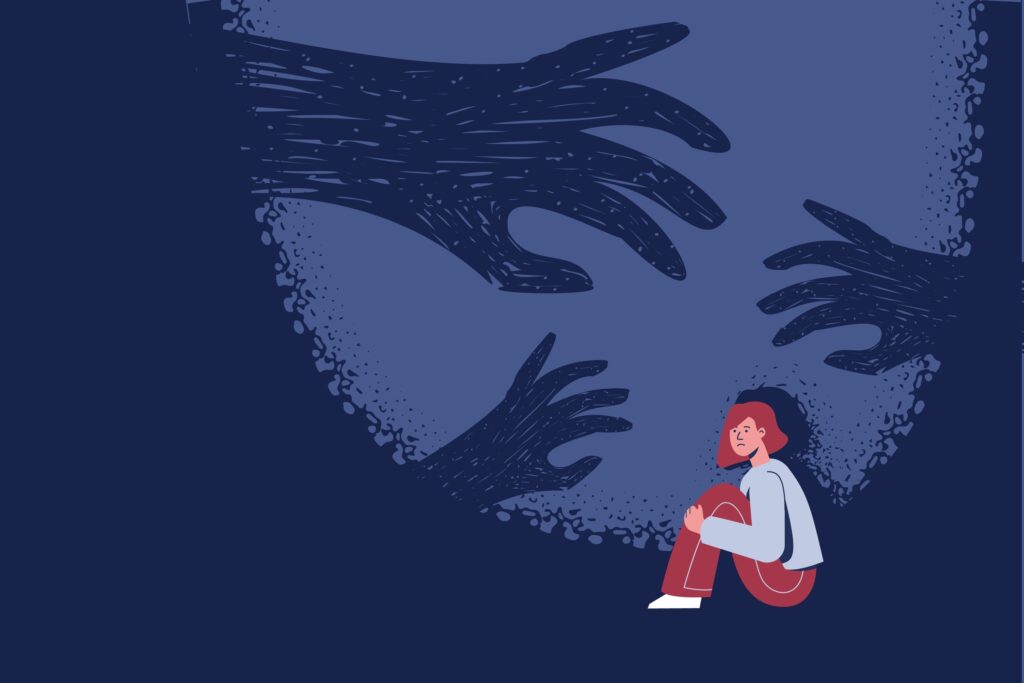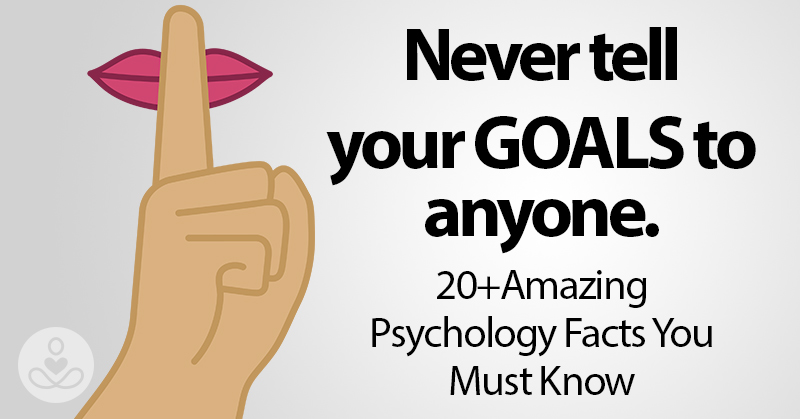Attempting to understand human psychology is not for the faint of heart. This work is best left in the hands of a trained mad scientist. Fortunately, some brave individuals have conducted studies to better understand what makes us humans tick. Here is a list of 20+ amazing facts for you to chew on.
1. Help, I Need Somebody, Help

People are more likely to help someone in need if there are few or no witnesses. In a crowd, people assume someone else will step up and provide assistance. In a low populated or private setting, people feel obligated to help and are more likely to assist those in need (1).low-populated
2. You’re a Real Word Smith

Studies show the average 20-year-old knows 42,000 dictionary words. Every two days we learn one new word. The math indicates that by the time we are 60, we will have amassed a vocabulary consisting of 48,000 words (2) and are officially in our scrabble playing prime.scrabble-playing
Read More: Your Senses Shut Down in a Certain Order When You’re About to Die
3. Shooting the Breeze

Women speak an average of 20,000 words per day, while men speak an average of 7,000 words per day. This nearly 3:1 ratio is attributed to women’s brains containing a language protein called FOXP2. Some men may argue this ratio is higher, but who’s counting (7).
4. You’re My Boy, Blue

Studies show the favorite color of both men and women is blue, with a higher favourability in men. Blue is believed to induce feelings of peace, calm, serenity and tranquility. Studies have shown that people are more productive in blue rooms (3). With majestic sites like a glistening ocean or a clear sky, it’s easy to see why so many love the color blue.
5. Oh, I’m Stressed

Stress is hitting us earlier in life than it used to. Studies show stress onset for the average person at age 24, whereas 30 years ago stress did not onset until the late 40’s or early 50’s. Factors of this trend include concerns about terrorism, concerns of global warming, concerns of the family structure, and the busier modern lifestyle (4).
6. The Most Depressed Generation

Studies suggest millennials are the most depressed age group. 19% of millennials are told they suffer from depression, compared to 14% of Generation X’ers, 12% of baby boomers, and 11% aged 67 and older (9).
7. The Low-Down On Friends

Science suggests that all we need are 5 inner circle friends to be content. While we are capable of having up to 150 meaningful relationships, 5 is the magic number. But what about the friend list you’re racking up on Facebook? Likely, most of these connections are some form of acquaintance or just plain out of mind (5).
8. Happy Texting Fingers

18.7 billion texts are sent worldwide every day! The age group sending the most texts is 18-24 years old. These youngsters send and receive over 128 texts each day, those are some active fingers (6).
9. Gotta Get My Steps

Studies show the average person takes about 4,774 steps daily. This total falls just below halfway short of the daily recommended step count of 10,000. Time to climb up and down those stairs a few more times before bed (8).
Read More: Side Effects of Common Medications Are Being Mistaken for ‘Old Age’
10. Goals- I Didn’t Say Anything About Goals

Personal goals are more likely to be accomplished if they are kept to yourself. Researchers say if you want to commit to a new change in your life- especially one that directly impacts your identity (like being a better parent or taking up long-distance running for your health), you’re more likely to succeed if you keep it to yourself. They think it’s because once you’ve told someone “I’m going to eat more leafy greens and fix my gut health!”, you’ve already gotten the nice feeling of having someone think of you as a healthy person…. so the actual benefits of becoming healthy aren’t as important.
11. Hug it Out?

Science indicates a hug should last 20 seconds in order to achieve optimal benefits. Hugging releases the feel-good hormone, oxytocin, into the bloodstream. Benefits of hugs include reduced stress, lower blood pressure, improved memory, and the ability to ward off colds. Hugs, is there anything they can’t do?
12. Placebo Sleep is Possible

A 2014 study found that just thinking you had a good night’s sleep can improve your attention, processing, and overall cognitive function, regardless of whether you actually enjoyed quality sleep. Of course, we don’t recommend swapping out a real 8 hours for the fake stuff!
13. I Ain’t Afraid of No Ghosts (Well, Maybe a Little)

In today’s crazy dating world, 50% of men and women report having been “ghosted”. “Ghosting”, having someone you’re romantically interested in disappear or vanish without a trace or explanation. Ghosting hurts, the ghostee is left with a knock to the self-esteem and searching for answers. Who you gonna call… ?
14. Phone Check

On average, people check their phones 46 times per day (14). It’s like a reflex. That’s pretty crazy! Once you start noticing just how dependent you are on your smartphone, it’s an incentive to start limiting your use. (Once you do, you’ll notice some extra benefits like no more neck pain and better sleep).
15. What Ever Happened to the Old-Fashioned Newspaper?

Reports suggest that 75% of people use their phone when on the toilet. Despite the popularity of this activity, phone use on the toilet is ill-advised due to the potential for harmful bacteria to latch to your phone. Sorry to be the bearer of bad news (15).
Read More: It’s science: Giving experiences instead of toys boosts your kid’s intelligence and happiness
16. Smart vs. Ignorant

Smart people underestimate their abilities while the ignorant overestimate their abilities. The intelligent falsely assume that others have an equal understanding. Conversely, the ignorant lack the ability to recognize their incompetence (16). Which one are you? Think about it.
17. A Sense of Humor Goes a Long Way

Humor is a sign of intelligence, an oldie but a goodie. A good sense of humor is linked to high emotional intelligence and is a highly desirable quality in a partner. Additionally, having a sense of humor towards life and showing levity is an excellent way to manage stress and difficult situations (17).
18- I’m Fine, Really! Just Charging My Batteries

An introvert is a person who gains energy from being alone and loses energy in social environments. Common myths of introverts suggest they are; all shy, socially inept and are rude. Now go and hug an introvert (18).
19. Can I Borrow Your Ear?

Extroverts gain energy from being social and lose energy in isolated situations (19). Common traits of extroverts include being the center of attention, acting before thinking, talkative and social activity (20).
20. Now, That’s Some Good Advice

People who give the best advice are often the ones with the most problems, it’s true. The logic is quite simple, people learn from mistakes and adversity. Someone who has endured through extraordinarily trying and exhausting situations will have savvy advice on how to avoid or get out of such situations (21).
21. Your Music Taste Says A Lot About You

Researchers say your choice of music actually reflects how you see the world. You can change your perception from positive to negative (and back again) by just picking a different playlist.
22. Some People Are Literally Overwhelmed by Beauty

Stendhal Syndrome refers to the odd psychological condition of having an overwhelming response to things of awe (like impressive art or a beautiful nature scene). “Many who fall under the spell of Stendhal may faint or feel like they are flying simply because they viewed a religious painting or sculpture. Their hearts race, they sweat and get stomach cramps, and they may experience the highs of euphoria or the lows of deep depressive states. Some think they are invincible while others feel they are a persecuted victim” (22)
Read More: If You’re Always Running Late, You May Just Be Optimistic – and Possibly Healthier Because of it
Sources
- “The Average 20-Year-Old American Knows 42,000 Words, Claims Study – How Do You Compare?.” IFL Science. Tome Hale. August 17, 2016.
- “Ask an Expert: The Causes of Depression.” PBS
- “This Is How Many Friends You Need to Be Happy” Life Hacker. Patrick Allan. March 1, 2018.
- “2023 State of Business Texting Report.” Text Request
- “An invented statistic returns.” Language Log. February 22, 2013
- Health
- Moods Mag
- The Loop
- Digital Doughnut
- Psychology Today
- Time
- Daily Mail
- Newsweek
- Introvert Spring
- Fast Company
- Grad Schools

